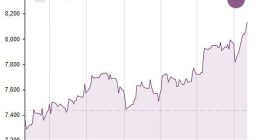
A surge in state investments has helped lift the Chinese economy from the effects of Covid-19, but likely has worsened one of its deepest weaknesses: low productivity.
Beijing has pulled off a robust economic recovery since early last year, when authorities locked down much of the country to combat the coronavirus epidemic. But the rebound has been unbalanced. It relied heavily on government expenditures and state-sector investments, while private spending remained weak.
That is amplifying a trend of declining growth in productivity—or output per worker and unit of capital—in the world’s second-largest economy, according to a new report by the International Monetary Fund. By the measure of average productivity across sectors, a gauge of overall economic efficiency, China’s economy is only 30% as productive as the world’s best-performing economies like the U.S., Japan or Germany, the report shows.
This poses a challenge to the leadership’s goal of elevating China into the ranks of rich nations and lifting its living standards.
“China has done most of the traditional public investment it can. It’s facing a shrinking labor force. So, where will lasting income growth come from?” said Helge Berger, the IMF’s mission chief for China. “Productivity.”








